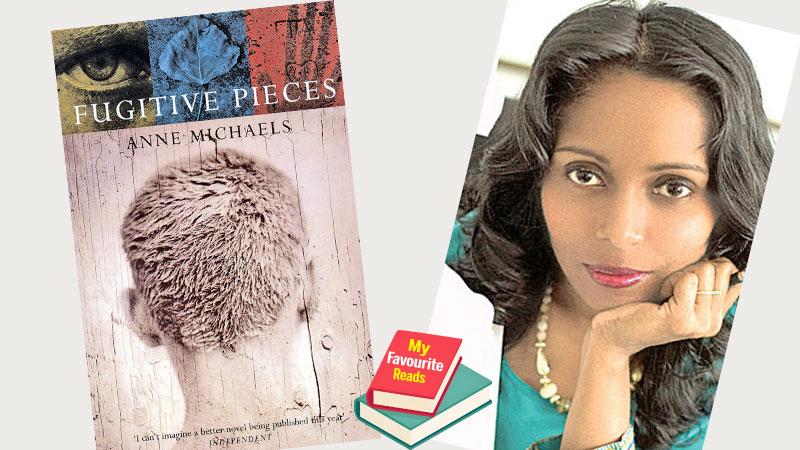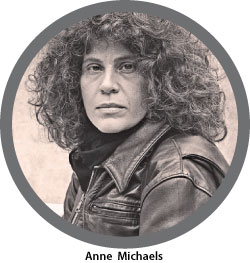
Ramya Jirasinghe is an author, a poet in English and a bookworm. Her first collection of poetry is ‘There’s an Island in the Bone’ published in 2010, won the 2011 State Literary Joint Award for poetry. Her second book of poetry is ‘Love Poems from a Frangipani Garden’ published in 2019. In 2001, she represented Sri Lanka at the Medellin Poetry Festival, Colombia, in South America. Her manuscripts were short listed for the Gratiaen Prizes of 1998 and 2008. She joins Youth Observer to discuss her favourite book and share her reading habits. Excerpts of the interview:
Q; What’s your favourite book?
A: My favourite book is Fugitive Pieces by Anne Michaels. I read this book twenty years ago. Anne Michaels is a Canadian poet and this is her first novel and it is a very poetic one.
Q: How would you describe the book?
A: There are two parts in the book. The first partcentres around Jakob Beer, a Polish Holocaust survivor while the second involves a man named Ben, the son of two Holocaust survivors. Ben lives in the modern time and he goes in search of his own story. One can say this is a holocaust book, but it is more than that. There are many themes in the book among like love, survival, degeneration and several others..
The book was first published in Canada in 1996 and then it was published in the United Kingdom the following year.Since the publication, it has won awards such as Books in Canada First Novel Award, the Trillium Book Award, Orange Prize for Fiction, Guardian Fiction Prize and the Jewish Quarterly-Wingate Prize. For over two years the novel was on Canada’s bestseller list, and it was translated into over 20 different languages.
Q; What is the specialty of the book?
A: It is the language. It was written by a poet and because of that the language in it is very poetic. And the setting is also beautifully evoked. It is evoked in a way that you can feel you are also in that setting.
Q : Generally, how do you select a book?
A: I try to read different types of books. I would read for the story or for some political interest. And I would like to see how the book was written by the author, how he tackled the subject. So, I don’t go for one particular thing. I try to read as widely as possible.
Q: How did you enter the world of books?
A: I was lucky that I was born into a houseful of books, because my great grandfather had a very big collection of books. And we also had an expatriate who had come with the Gal Oya project.He was a Welsh person and lived with us. So, he also had a huge collection of early twentieth century literary books. In this background, I naturally entered into the world of books.
Q: Who are the others in your family who read books?
A: Everyone in my family reads books. My father read, mother read. But I was very influenced by a poet, Anne Ranasinghe. She is no more but I consider her as my mentor. She influenced my writing a lot.
Q: Did you visit libraries?
A: Yes, as a child, I was a member of the Colombo public library. I used to go there often and they have an excellent collection of books.And I was a member of the KotteMunicipal Council Library as well. My school also had a library. And during my A/L and O/L years, I got membership of theBritish Council library. I depended a lot on libraries. I never missed going to the public library.
Q: Did you read only English books or English and Sinhala?
A: I read in both the languages. My mother, father and my great grandfather were also bilingual readers.
Q: What is your view of the present readership in society?
A: I only know about my circles of friends and families. In my view, a person who likes to read will always read. I don’t know whether it has got less, because there are many books which come out that children read. If you give childrenbooks early, they start reading.
Q: Do you believe that readership has decreased now?
A: I can’t say that because you have to do research on the book sales to comment on that. What I have seen isthat young people read. Actually,even in my generation, I saw people who didn’t read. So, I can’t saythe new generation does not read.
Q: What are types of books that you prefer?
A: Because of the locke down, I really started reading again. Now I try to read as much as possible and as widely as possible. I have downloaded the Kindle on to my phone and because of that I read lot of Ebooks without going out to buy books.
Q: Do you prefer Ebooks to hardcopy?
A: It is always nice to get a hardcopy of a book. But the thing is the more I read the Ebooks, the more I realisethat we are just creating a muchwaste of paper when we have hardcopy books whereas anEbook is environmentally friendly and also easy on the eye as you can make the font bigger when you want to read. Anyway, author gets the money either way whether you read an Ebook or not. I don’t use piracy Ebooks, I pay for Ebooks.So, I prefer environmentally friendly Ebooks now.
Q: Do you read while you are writing?
A: Yes. I do. I always like to read. It is not a bother for me to read fiction or nonfiction while I was engaged in a book project. Actually, for me it’s an inspiration to read.
Q: Any advice for aspiring writers and also for readers?
A: For a reader, I would say read as widely as possible, read different authors, different languages, translations if you can find, and different time periods. You read from a different range. For a writer, I would say you have to write. I know it sounds obvious.
If you write a novel, you need to write fifty thousand - seventy thousand words. If you write a poetry book, you need to have thirty – forty poems for the book. So, you have to sit down every day and write. Nothing else, write and read. A writer has to read also, a lot, and he has to learn from others.
Q: What kind of literature do you prefer to read? Is it English, Russian or French literature? Or any other literature?
A: I don’t have a literary division, because I try to see how the writer wrote the book or what the writer has done, when I read a book. I don’t go by likes or dislikes any more. So, I read any literature, doesn’t matter where it comes from. However, I like to read Tolstoy in Russian literature, Gabriel Garcia Marquez in Latin American literature, and in Sinhala literature, I prefer to read Sunethra Rajakarunanayake.
